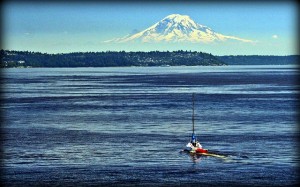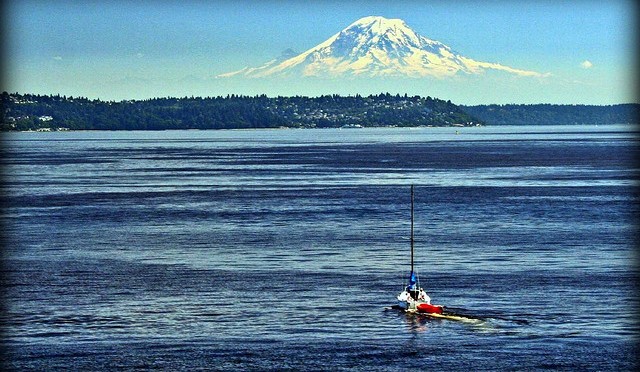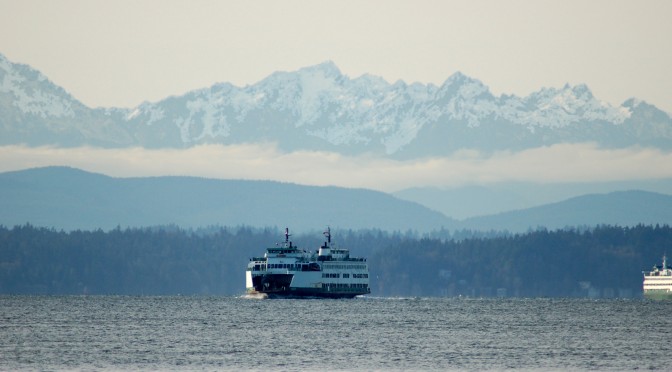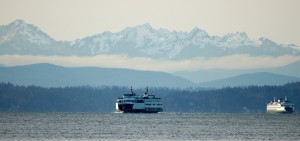
Storm water runoff is a major cause of water pollution in urban areas, which is why we ask the question: How can rainwater harvesting benefit our cities?
When rain falls in undeveloped areas, the water is absorbed and filtered by soil and vegetation. Not so in urban environments. Streets, parking lots and buildings are impervious surfaces and do not allow the natural process of infiltration. In most urban areas, storm water is drained through collection systems and discharged into our waterways. This storm water carries oils, bacteria, heavy metals and other pollutants into the receiving water. The storm water overwhelms the sewer system and intentional releases of sewer into our waterways is conducted to prevent a spill onshore.
Seattle is mandated by the federal government to address its storm water and sewage releases into the Puget Sound. With higher density development, the “Green Stormwater Infrastructure” (GSI) was mandated to address storm water runoff with infiltration techniques such as bio swells, green roofs, infiltration planter boxes, including green parking areas and streets using permeable pavers. While these techniques are helping to reduce run off they do not address the increasing demands on our water resources.
Rainwater that is harvested collects and stores rainfall for future use. When designed and installed properly, it, too, helps reduce runoff while providing a viable source of water for irrigation, toilet and laundry facilities, and when filtrated and disinfected can be an alternative to city water for potable use.
With increased demands on centralized water systems from population growth, aging infrastructure, and increased costs to upgrade and maintain, rainwater harvesting for commercial and residential use is a viable and economical solution.
Mt. Rainier and the Puget Sound photo courtesy of Andrew E. Larsen.



 With population growth in the Seattle and surrounding area, the effects of this growth, demand, and aging infrastructure will impact our water and sewer systems economically.
With population growth in the Seattle and surrounding area, the effects of this growth, demand, and aging infrastructure will impact our water and sewer systems economically. According to a recent article published by
According to a recent article published by